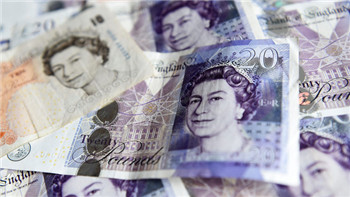(单词翻译:单击)

Central banks have never been so powerful, yet their ability to set the cost of borrowing, put limits on bank lending and poke their noses into every corner of the financial system is insufficient for some. Now the Bank of England’s chief economist wants to abolish the cash in your wallet and charge you for a digital equivalent.
央行从未这么强大过,然而某些人嫌它们设定借款成本、限制银行放贷以及干预金融体系各个角落的能力还不够。现在英国央行(BoE)的首席经济学家希望取缔你的钱包里的现金,代之以可向你实行负利率的数字货币。
Andy Haldane argues the world economy is entering a third leg of a long crisis: an emerging market disaster is following the Anglo-Saxon and eurozone crises of 2008 and 2011 respectively. In these circumstances he wants to be able to stimulate spending in Britain but says he cannot easily do so because interest rates are constrained not to fall below 0 per cent. He worries that if the BoE set a negative interest rate — in effect charging savers to hold their money in the hope they would spend instead — people would switch to cash, stick it under the bed and thereby get around the efforts to encourage more consumption.
安迪哈德恩(Andy Haldane)辩称,全球经济正进入一场旷日持久的危机的第三阶段:继2008年“盎格鲁-撒克逊”(Anglo-Saxon)危机和2011年欧元区危机之后,如今轮到新兴市场发生灾难。在这样的背景下,他希望能够刺激英国支出,但他表示,这么做并不容易,因为利率受到制约,通常不能降至负数。他担心,如果英国央行设定一个负利率——实际上就是对存钱的储户收费,寄望于他们能够转而把钱花掉——人们将转向持有现金,把它们放在床底下,从而让鼓励更多消费的努力落空。
Attach a gloomy assessment of the efficacy of quantitative easing and other means of stimulating spending, and his answer is to get rid of cash and replace it with a digital wallet on which negative interest rates can be charged.
再加上对量化宽松和其他刺激支出举措效果的悲观评估,他的解决办法是消灭现金,代之以数字钱包,这样就可以实行负利率了。
The case might be logical, but that is not a sufficient condition for public policy. Mr Haldane thinks banning cash and switching to digital money would be a “great technological leap forward” but his words have more than an unfortunate rhetorical echo of Maoist China. It is illiberal and prioritises a skewed view of theory over public acceptability.
这样的推论可能合乎逻辑,但那不是公共政策的充分条件。哈德恩认为,禁止现金,改用数字货币将是“伟大的技术大跃进”,但这种言论不只是令人遗憾地联想到毛泽东时代的中国,而且限制自由,把某种奇葩理论置于公众接受度之上。
For the vast majority of the time when interest rates are positive, Mr Haldane’s plans are simply unnecessary. He would ban the use of paper currency and coinage that has been used for centuries in pursuit of a theoretical contingency. Some 48 per cent of all transactions in the UK use cash, defying regular predictions of its demise and making it by far the most popular payment method. No wonder wiser heads at the BoE, such as Victoria Cleland, the chief cashier, say cash is here to stay.
在利率为正的绝大部分时间里,哈德恩的计划完全没有必要。他为了实行理论上的应急方案,禁止已使用数个世纪的纸币和硬币。在英国的所有交易中,约48%是现金交易,这意味着现金是遥遥领先的最受欢迎的支付方式,也让不时冒出的预测现金消亡的论调不攻自破。难怪英国央行总出纳维多利亚克莱兰(Victoria Cleland)等比较明智的人士表示,现金将继续存在。
At times when interest rate rates would ideally fall below zero, the central bank still has more tools in its armoury than Mr Haldane cares to consider. Nordic countries have shown that significantly negative rates can be imposed on bank deposits without the feared shift towards people hoarding cash under mattresses, so there is already more room for conventional monetary policy to work. In addition, it is clear that in the event of a slump a broad-based tax cut financed by central bank purchases of the resulting public debt would provide the necessary stimulus.
即便在利率最好降至负数的情况下,英国央行可动用的工具仍比哈德恩操心考虑的要多。北欧国家的经验表明,可以对银行存款实行远低于零的负利率,而不用担心人们会把现金藏在床垫下,因此常规货币政策已经拥有更大的用武之地。此外,在经济低迷的情况下,全面减税——由央行通过购买由此导致的公共债务来买单——显然将提供必要的刺激。
Mr Haldane asserts that such action would send monetary credibility “down the most slippery of slopes”. This fear is far from well grounded; and, as Professor Simon Wren Lewis of Oxford observes, ruling out monetary financing of tax reductions for fear they might be popular is hardly a sensible position for an unelected central banker.
哈德恩断言,此类举措将让货币政策的可信度“滑下最陡的斜坡”。这种担忧毫无根据;正如牛津大学(Oxford)教授西蒙雷恩-刘易斯(Simon Wren-Lewis)所言,对一个未经选举上任的央行行长来说,由于担心受欢迎而排除由货币主管当局为减税买单,很难说是一种明智的立场。
Some argue there would be beneficial side effects from abolishing notes and coins through the regularisation of illegal activities. Really? What is the more likely response of a drug dealer and client who mutually want to conduct a trade: “Let me sell you the dope on a traceable payment system”; or “Let’s use euros instead”? Cash would have to be abolished everywhere and the BoE does not have those powers, thankfully.
一些人辩称,取缔钞票和硬币可带来监管非法活动的有益副作用。果真如此吗?毒品贩子和瘾君子全都想进行交易,他们更有可能的回应是:“让我通过一个可追溯的支付系统卖给你毒品;”或者是“我们使用欧元吧?”各地都将不得不废止现金,谢天谢地,英国央行没有那么大的权力。
The anonymity of cash helps to free people from their governments and some criminality is a price worth paying for liberty, as professors Stephen Cecchetti and Kermit Schoenholtz observe. It is better if the government creates trusted, anonymous notes and coins rather than some private agent.
正如史蒂芬切凯蒂(Stephen Cecchetti)教授和克米特舍恩霍尔茨(Kermit Schoenholtz)教授所指出的,现金的匿名性有助于人们摆脱政府的监视;为了自由,存在一些犯罪活动是值得付出的代价。由政府(而非某种私人机构)创造值得信任的匿名钞票和硬币是更好的安排。
Mr Haldane’s proposal to ban cash has all the hallmarks of a public official confusing what is convenient for the central bank with what is in the public interest. Cash is unlikely to die a natural death — and, until it does, long may it live.
有些公共官员会混淆什么是适合央行的和什么是符合公共利益的,哈德恩废除现金的提议符合这种官员的特征。现金不太可能自然消亡;在它最终消亡之前,祝愿它长期存在。


